Navigating avian influenza risk

A duck flock residing next to nesting colonies of waterbirds in Cambodia. Credit - Eleanor Briggs.
Strategic steps: Navigating avian influenza risk in Cambodia's wetlands
Cambodia is home to some of the world's most endangered waterbird species, including the Giant Ibis (Thaumatibis gigantea), White-shouldered Ibis (Pseudibis davisoni) and Sarus Crane (Antigone antigone). While efforts to revive these threatened populations are gaining traction, the encroachment of agriculture and human settlements into their habitats has introduced new challenges - notably the heightened threat of disease in both poultry and wild birds, resulting from spillover of highly pathogenic avian influenza (HPAI).
"HPAI poses a serious public health threat as it can spill over into humans, typically from direct or indirect contact with domestic fowl."
As the world battles widespread outbreaks of HPAI, it is certain we are amid one of the worst animal health disasters of our time. HPAI is impacting both domestic and wild birds on an unprecedented scale in terms of mortality, economic and livelihood losses, and global geographic spread. An incredible range of bird species have been affected including wildfowl, waders, cranes, grebes, herons, pelicans, corvids, and raptors. Numerous outbreaks and cases have also been detected in mammals such as red fox, Eurasian otter, American black bear, and marine mammals, underscoring the far-reaching ecological consequences and the potential for complex cascading effects.

Cambodia is no stranger to responding to calls of HPAI outbreaks and mass mortality in wild birds. In 2021, conservation partners responded to outbreaks in two key nesting sites which ultimately killed over 1,700 Asian Openbill Storks (Anastomus oscitans), plus egrets, pond-herons, and cormorants. Then in 2022 and 2023, mass mortality events in wild birds recurred in these very same locations as well as additional sites, including some of the most important colonies for threatened waterbird conservation across the country.
Domestic poultry are also succumbing to the virus. Small to medium scale duck farming is a major livelihood source to many communities around Cambodian wetlands. The loss of these birds due to HPAI and other infectious diseases has severe consequences, both in terms of economic hardship and food security. These farms are often situated within or near where wild birds nest or feed, creating an interface across which HPAI and other diseases can circulate. Furthermore, HPAI poses a serious public health threat as it can spill over into humans typically from direct or indirect contact with domestic fowl, as evidenced by two documented cases in rural Cambodian communities this year.

This Darwin Initiative Innovation project began in April 2023, on the heels of the most recent outbreaks among nesting waterbirds in Cambodia. Through partnerships between the Wildlife Conservation Society (WCS) and the Royal Government of Cambodia’s Ministry of Environment, this project will improve our understanding of how HPAI circulates in these high-risk pilot wetlands and establish measures that reduce the risk of spillovers, safeguarding waterbird colonies and smallholder farmers. The project team is currently gathering important ecological data and mapping the network of duck farmers who operate in and around the affected areas. Wildlife health surveillance will be operationalised, leveraging the progress and capacity developed through previous efforts (Pruvot et al. 2022), and employing innovative data collection tools. By adopting a One Health approach (a collaborative, multisectoral, and transdisciplinary approach) we will also equip and empower communities living next to these wetlands to protect their own health, the health of their domestic poultry, and the wetland ecosystem from the impacts of HPAI. Practical, low-cost, and culturally acceptable measures for improving farm biosecurity (prevention of disease), poultry husbandry (the care and management of domestic birds) and livelihood security will be co-designed with communities, strengthening the physical and natural barriers to pathogen (disease) sharing between wild waterbirds and poultry coexisting in these sites. Sustainable community safeguards will be developed to mitigate economic repercussions of potential future disease outbreaks on smallholder farms.
"Reducing disease threats to Cambodia's globally threatened waterbirds is essential to ensuring their populations’ survival."
This scalable model aims to restore ecological integrity, promote sustainable co-management of wildlife and livestock, and foster economic resilience for communities whilst achieving biodiversity conservation outcomes. Reducing disease threats to Cambodia's globally threatened waterbirds is essential to ensuring their populations’ survival.
Written by Emily Denstedt. For more information on this Darwin Initiative Innovation project DARNV015, led by WCS, please click here.



 Back
Back